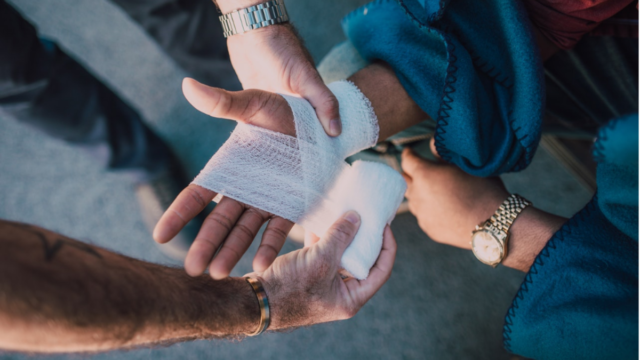Going through a personal injury lawsuit can be frustrating. Once you do make the decision to file a personal injury claim, you’ll want to do everything you possibly can to maximize your personal injury settlement.
What you do after an accident is critical. Luckily, there are things you can do to maximize your claim. Knowing the ins and outs of your case can help you maximize how much you are awarded at the end.
The First Offer Is Usually Low
Contents [show]
It’s common for an insurance company to offer a very low settlement offer to start talks. Generally, you are going to want to decline this offer. You can likely get more, even with your first counter. An insurance adjuster is simply trying to feel if you know how much your claim is worth and if you have the patience to wait.
How do you respond? Was the offer fair but too low? Or, was it too low that it’s almost an insult? Base your response off these two questions. If you believe the offer was fair but a bit lower than you want, you can counteroffer with an amount higher than their offer but lower than the amount you first asked for. With a little negotiation, you should be able to reach a number both sides can agree on.
During your negotiations, be sure to reiterate that they are completely at fault.
Hire an Attorney
It’s in your best interest to consult with a personal injury lawyer before you file a lawsuit. If you haven’t and negotiations aren’t going your way, it’s probably time to see a lawyer.
Talk to a personal injury lawyer if you’re seeking tens of thousands of dollars or more. An insurance adjuster is unlikely to take an unrepresented claimant seriously. Another reason you’d want to hire a lawyer is if you are claiming lost future income or medical expenses. A lawyer can help you negotiate a fair settlement.
What if there’s doubt as to who is at fault? You definitely want a lawyer to properly present your case. A lawyer can help in almost every scenario, so at the very least, consult with one before filing a claim.
Choose a Certain Personal Injury Settlement Amount
You determined a range of what you think your claim is worth when putting together your settlement demand letter. Decide on a minimum settlement number within that range before speaking with an insurance adjuster about your demand. Keep this amount to yourself. It simply sets your bottom line before negotiations begin.
You may have to adjust this number later, but it will be a good starting point. As your case continues on, more information may support your claim further or weaken it. This will affect the personal injury settlement amount.
Get It In Writing
When you have reached an agreement on a figure with an insurance company, get it in writing. Write a letter to reaffirm the agreement. It doesn’t have to be a long, drawn out document. The letter can be brief and to-the-point.
Never Admit Fault
After an accident, you may feel compelled to apologize. However, you must be cautious in what you say. Any remark you make may be used against you by the insurance company, and it most likely will be. The truth is that you won’t know who is really at blame in an accident until a thorough investigation has been performed.
So, whether a police officer questions you at the scene of a vehicle accident or a shop management or investigator questions you at the scene of a slip and fall accident, simply tell them what occurred. Do not accept responsibility for your actions. Don’t place blame on anybody. Keep your focus on the facts.
Follow Your Doctor’s Orders
It’s simple. If you are hurt during an accident, seek medical attention and follow the doctor’s orders.
It’s critical that you follow your doctor’s recommendations and treatment plan. For example, if your doctor advises that you rest for two weeks before returning to work, wait until that rest period is up. If you don’t follow your doctor’s instructions, the insurance company may accuse you of being irresponsible, claiming that your activities led to your injuries and agony. Not following your doctor’s orders may be used by the insurance company as proof that your injuries are not as severe as you claim. This could affect the amount you receive in your personal injury settlement.
Again, follow your doctor’s orders.


